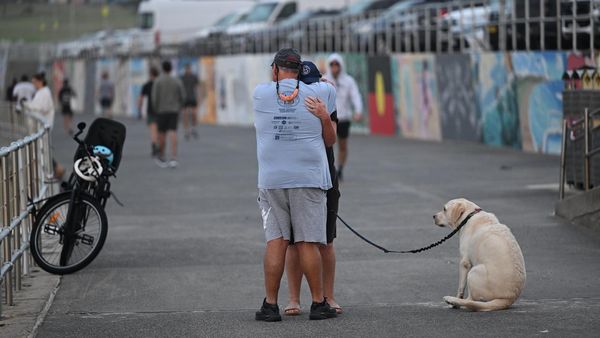
France has underlined the urgency of a diplomatic solution in response to Iran's advancing nuclear programme as a second round of talks get underway in Geneva, ahead of next week's inauguration of Donald Trump as US president.
France, Britain and Germany are holding talks with Iran in Geneva this Monday over Tehran's nuclear ambitions, just a week before US President-elect Donald Trump takes office.
They are the second round of talks over Iran's nuclear programme in less than two months, following a discreet meeting held in Switzerland in November between Tehran and the three European powers, known as the E3.
Germany's foreign ministry has underlined: "These are not negotiations", while Iran has similarly emphasised that the talks are merely "consultations".
According to Iran's foreign ministry spokesman Esmaeil Baqaei, the discussions – scheduled over Monday and Tuesday – will cover a "wide range of topics ... The primary objective of these talks is to remove the sanctions [on Iran]".
He added that Iran was also "listening to the ... topics that the opposite parties want to raise".
France, European powers push to censure Iran at UN nuclear meeting
Trump's return
On Thursday, France's foreign ministry said the meeting was a sign that the E3 countries "are continuing to work towards a diplomatic solution to the Iranian nuclear programme, the progress of which is extremely problematic".
This week's talks in Geneva come as Iran's nuclear programme has received renewed focus in light of Donald Trump's imminent return to the White House on 20 January.
During his first term, Trump had pursued a policy of "maximum pressure", withdrawing the US from a landmark nuclear deal which imposed curbs on Iran's nuclear programme in return for sanctions relief.
Tehran adhered to the deal until Washington's withdrawal, but then began rolling back its commitments.
Efforts to revive the 2015 nuclear pact have since faltered and European officials have repeatedly expressed frustrations over Tehran's non-compliance.
'Breaking point'
Last week, French President Emmanuel Macron said the acceleration of Iran's nuclear programme is "bringing us very close to breaking point".
Iran later blasted the comments as "baseless" and "deceitful".
In December, Britain, Germany and France accused Tehran of increasing its stockpile of highly enriched uranium to "unprecedented levels" without "any credible civilian justification".
"We reiterate our determination to use all diplomatic tools to prevent Iran from acquiring a nuclear weapon – including using snapback if necessary," Tehran added.
The snapback mechanism – part of the 2015 deal, known as the Joint Comprehensive Plan of Action or JCPOA – allows signatories to re-impose United Nations sanctions on Iran in case of the "significant non-performance" of commitments.
The option to trigger the mechanism expires in October this year, adding urgency to the ongoing diplomatic efforts.
The International Atomic Energy Agency (IAEA) nuclear watchdog says Iran has increased the manufacture of enriched uranium such that it is the only non-nuclear armed state to possess uranium enriched to 60 percent.
That level is well on the way to the 90 percent required for an atomic bomb.
UN nuclear agency 'regrets' lack of Iranian cooperation
End to isolation
Iran maintains that its nuclear programme is solely for peaceful purposes and denies any intention to develop atomic weapons.
It has also repeatedly expressed a willingness to revive the deal.
President Masoud Pezeshkian – who took office in July – has favoured reviving that agreement and called for an end to his country's isolation.
In a recent interview with China's CCTV, foreign minister Abbas Araghchi also expressed willingness "to engage in constructive negotiations".
"The formula that we believe in is the same as the previous JCPOA formula, namely, building trust on Iran's nuclear program in exchange for lifting sanctions," he said.







